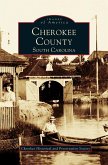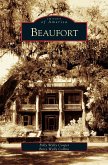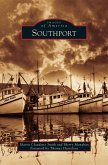On April 12, 1861, Confederate forces at Fort Johnson fired upon Federal-occupied Fort Sumter in Charleston Harbor, etching James Island's name in American history as the starting place of the War Between the States. The island was a battleground for war skirmishes, live oak-laden property that housed antebellum plantations, fertile soil that yielded sea island cotton, precious land that enslaved so many, and a rural planting community existing in the shadow of Charleston. More than this, though, James Island was and is a beloved home to generations of proud families and individuals. This South Carolina sea island, which once flourished and folded under the bondage of slavery, is now a place where all races live and celebrate its rich heritage. The Gullah culture and language thrive and are treasured here, as are the Southern traditions of the original planters and their descendants.
Hinweis: Dieser Artikel kann nur an eine deutsche Lieferadresse ausgeliefert werden.
Hinweis: Dieser Artikel kann nur an eine deutsche Lieferadresse ausgeliefert werden.








